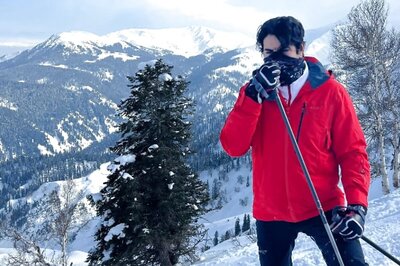
views
New Delhi: Will Einstein's 1905 theory of relativity - one of the most fundamental pillars of physics - that underpins "nothing can travel faster than light-300,000 kms, or 186,000 miles, per second" be proved wrong? The speculations started coming after scientists at the world's largest physics lab CERN claim to have clocked sub-atomic particles or neutrinos travelling faster than the speed of light.
European Organization for Nuclear Research CERN, near Geneva, says a neutrino beam shot off from a particle accelerator near Geneva to a lab 730 km away in Italy, whooshed 60 nanoseconds faster than light, with a speed of 186,282 miles per second.
But, how could the fact be ignored that Einstein's theory has been tested thousands of times over the past 106 years? And, only recently have here been just slight hints that the behaviour of some elementary particles of matter might not fit into it.
If the findings by the CERN are correct, it would force an overhaul of the fundamental laws of nature and how the universe works. These particles are 6 km/second faster than light, which is strange because 100 years ago, Einstein suggested nothing can go faster than light. If these scientists are right and Einstein was wrong, whatever we know about our Universe will soon be turned on its head.
"The feeling that most people have is this can't be right, this can't be real," reported IANS.
Earlier, the Chicago team had similar faster-than-light results in 2007, but then the giant margin of error undermined its scientific significance.
According to eminent cosmologist and astrophysicist Martin Rees "Extraordinary claims require extraordinary evidence, and this is an extraordinary claim."
"It is premature to comment on this," said Professor Stephen Hawking, the world's most well-known physicist. "Further experiments and clarifications are needed," he added. Till other scientists do the same experiment and make similar observations, the new results will not be accepted. And that will take a few months.
The high level of caution is normal in science where anything that could be a breakthrough discovery, especially overturning well-established thinking, is in principle always checked and rechecked by other researchers.
"Only when the dust finally settles should we dare draw any firm conclusions," said Professor Jeff Forshaw, a professor of particle physics at Britain's Manchester University.
Scientists agree that if the results derived by CERN are confirmed, it would prompt a fundamental rethink of the laws of physics.


















Comments
0 comment